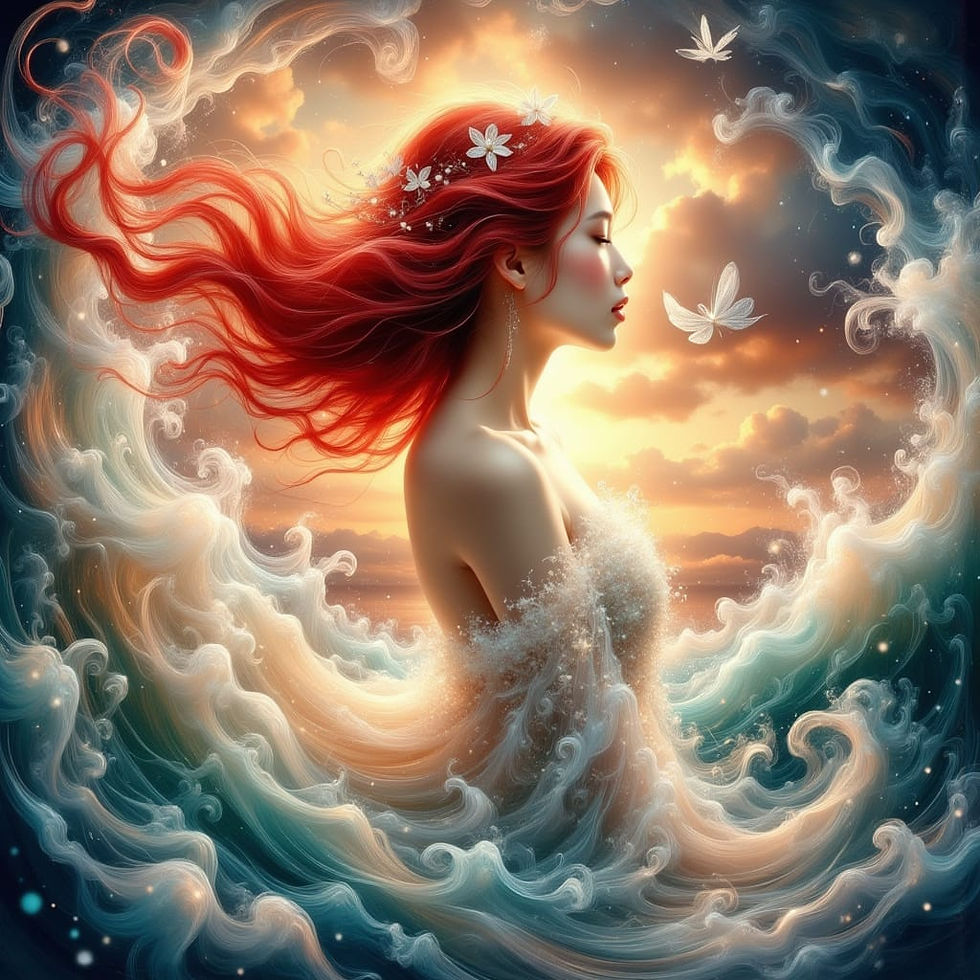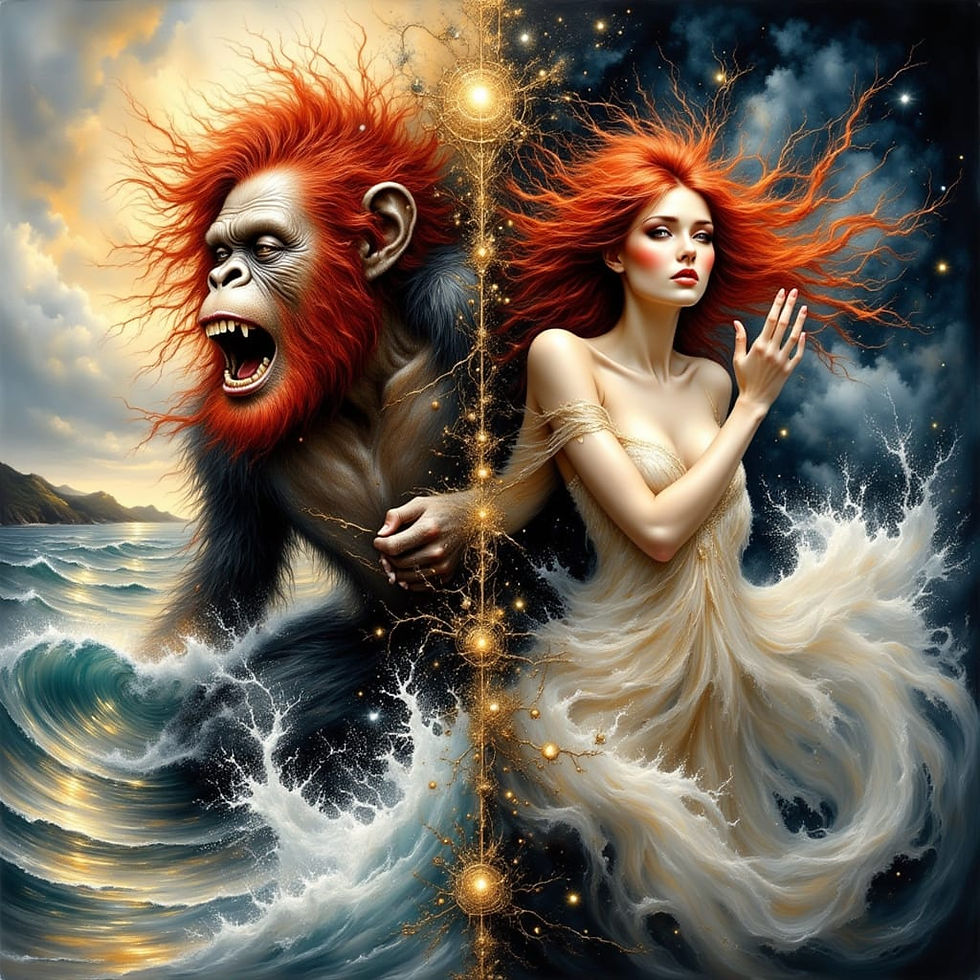The Shōjō's Song: When Enchantment Leads to the Deep
- Larisa Ion
- Jun 18, 2025
- 3 min read
We've all heard tales of mythical creatures who lure sailors to their doom with irresistible songs. Often, we picture beautiful, half-fish women on jagged rocks. But what if the voice came from something entirely different? In the rich tapestry of Japanese folklore, the Shōjō offers a fascinating twist on this ancient siren archetype. While commonly depicted as revelrous, sake-loving, red-faced ape-men, there's a compelling whisper in their lore that hints at a more alluring, and perhaps more dangerous, side.

More Than Just a Drunken Reveler
A secluded stretch of Japanese coastline. The mist clinging to the ancient pines. The rhythmic sigh of the waves. It's here that the Shōjō are said to dwell, creatures of the sea and the spirit world, known for their insatiable thirst for sake and their boisterous, joyous dancing. Their most iconic image is that of a man, with a shock of wild red hair, a ruddy face from drink, and an ape-like physique. They're often seen as benevolent, even generous, spirits who reward kindness with endless wine.
But then, there's the song.
The Allure of the Voice

The Shōjō are renowned for their captivating voices. It's a key part of their artistic expression and their ability to charm. And this is where the lines begin to blur, and the possibility of a different manifestation arises.
Consider the classic siren: a being whose power lies almost entirely in their voice, leading mortals astray. In Japanese tales, while the Shōjō's primary depiction is male, the effect of their enchanting song can be equally potent and perilous. The tale where a Shōjō lures a fisherman into the sea with her beautiful song is a perfect example of this.
This isn't to say the Shōjō are always women, or even that they primarily appear that way. Instead, it speaks to the fluidity of yōkai and the power of narrative. Folklore often adapts to suit the story being told. When the essence of the tale is about irresistible allure and dangerous enchantment, the spirit might manifest in a form that best serves that purpose. A female form, with a conventionally "seductive" voice, would naturally amplify the danger and tragic beauty of such a narrative.
The Echo of the Siren

The mists part, and a figure emerges from the waves. Perhaps still with that striking red hair, but now flowing, framing a face of captivating beauty. And then, the voice. A melody so pure, so sorrowful, so utterly enchanting that the listener forgets everything – their boat, the shore, their very life. They are drawn, step by agonizing step, into the cold embrace of the ocean, simply to follow the source of that divine sound.
This interpretation highlights a deeper, more somber aspect of the Shōjō. It's not just about getting drunk; it's about the intoxicating power of art, beauty, and expression itself. When one becomes too enchanted, too lost in the spell, even the most seemingly harmless spirit can lead to peril.
So, while the image of the male, sake-guzzling Shōjō reigns supreme in many cultural representations, the whisper of the female, siren-like Shōjō reminds us that in the world of yōkai, appearances can be deceiving, and true danger often lies in the irresistible allure of the unknown.
What other aspects of yōkai lore do you find most intriguing?





Comments